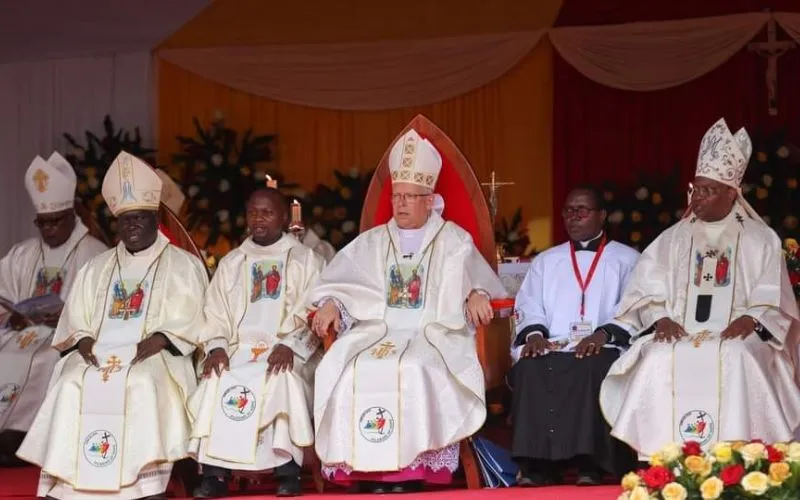 Credit: Catholic Archdiocese of Nairobi (ADN)
Credit: Catholic Archdiocese of Nairobi (ADN)
“Peter comes from that kind of reality,” Archbishop van Megen said, adding that the Kenyan Bishop-elect lived in prison for many years and came to know the prisoners by name.
Peter, he said, listened to the prisoners’ stories and always sought to understand their fears and frustrations.
“People can be murderers and rapists, but they are all also many other things other than that. That is what Peter Kimani came to know about those prisoners. He came to know the human stories about their pain and their suffering in the prison system,” Archbishop van Megen said.
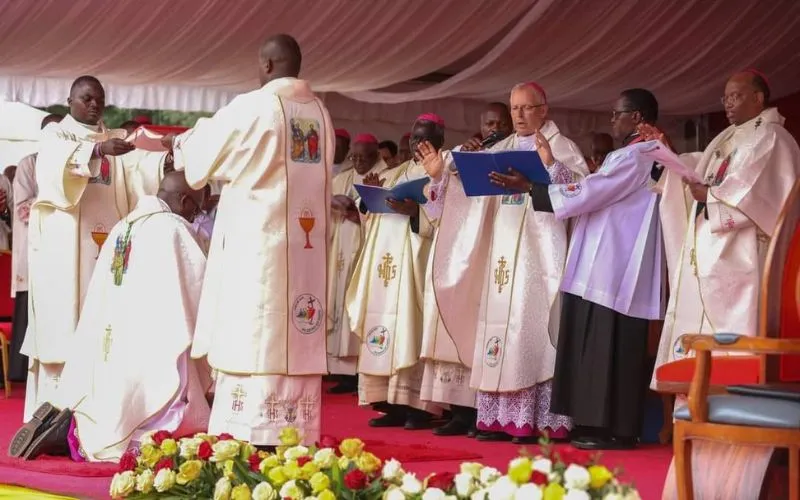 Credit: Catholic Archdiocese of Nairobi (ADN)
Credit: Catholic Archdiocese of Nairobi (ADN)
(Story continues below)
In his homily, the representative of the Holy Father in Kenya reminded the Kenyan Bishop-elect to always serve the people with humility.
“The life of a Bishop is not about honours and respect. It is not about being with the powerful. It is not about being a politician. It is not about being proud or fixed on money, waiting for the infamous brown envelopes. It is not about ruling with an iron fist or looking for revenge when you feel hurt,” Archbishop van Megen said.
He reminded the Bishop-elect that a large part of the missionary activity of St. Paul was “in the dungeon.”
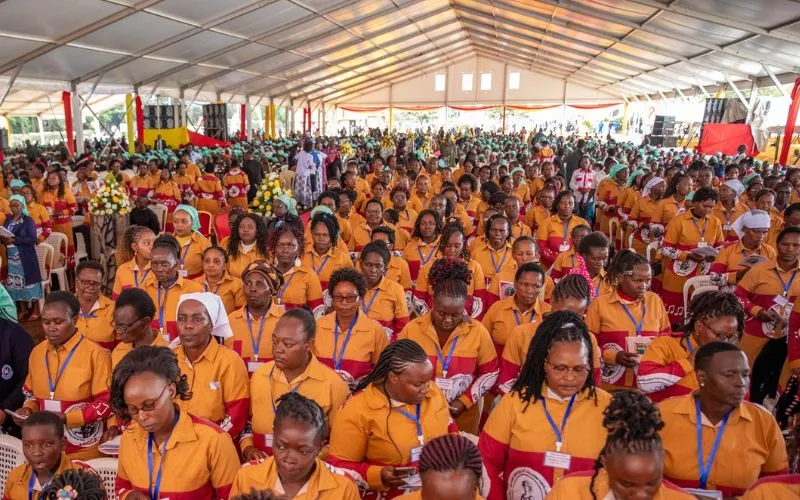 Credit: Catholic Archdiocese of Nairobi (ADN)
Credit: Catholic Archdiocese of Nairobi (ADN)
“Many of St. Paul’s letters were written during his prison time,” he said.
The Vatican diplomat he started his service as Apostolic Nuncio in Sudan in May 2014 also reminded the Bishop-elect to serve all the people of God without favouritism.
He urged the Bishop-elect to always seek to identify with those who are less known, and explained, “You know that very well because prisoners are those who are excluded from society, and who are many times, not even known by name.”
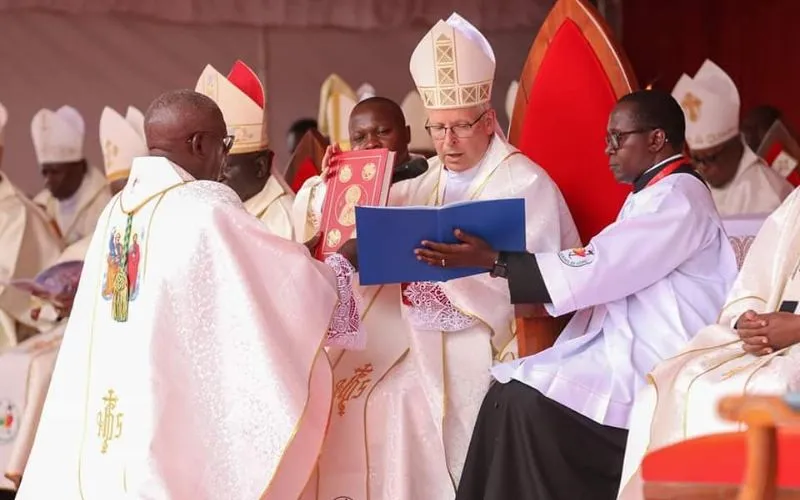 Credit: Catholic Archdiocese of Nairobi (ADN)
Credit: Catholic Archdiocese of Nairobi (ADN)
“Speak with those who do not speak your language, who are not your culture, who are not your class. You may find Christ more easily and more profoundly with those who do not mean anything in society than with those who are powerful with money,” the Apostolic Nuncio said.
Kenyan government leaders, who spoke at the November 16 Episcopal Consecration event lauded the role of the Catholic Church in Kenya’s development, especially in the provision of health and education.
Describing the Catholic Church as “a greater partner" in development, Embu Governor Cecily Mbarire said, “The work of the Catholic Church in the sector of education cannot be ignored. The work of the Church in the health sector of Embu County also speaks for itself.”
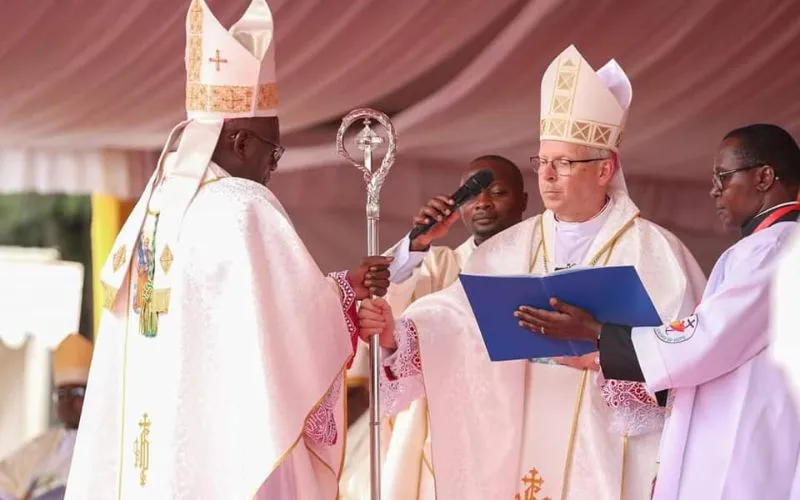 Credit: Catholic Archdiocese of Nairobi (ADN)
Credit: Catholic Archdiocese of Nairobi (ADN)
Governor Mbarire’s sentiments were echoed by Kenya’s Deputy President (DP), Prof. Abraham Kithure Kindiki, who noted that the Catholic Church runs many projects in the country.
“Kenyans are very grateful to the Catholic Church for contributing to the development of this nation,” Kenya’s DP said, and added, “The Catholic Church looks at the holistic development of the people of Kenya; not just spiritual nourishment but also the socio-economic wellbeing of the people.”
In his address at the ceremony, Kenya’s President William Samoei Ruto expressed the readiness of the government to work with the Catholic Church in developing the country.
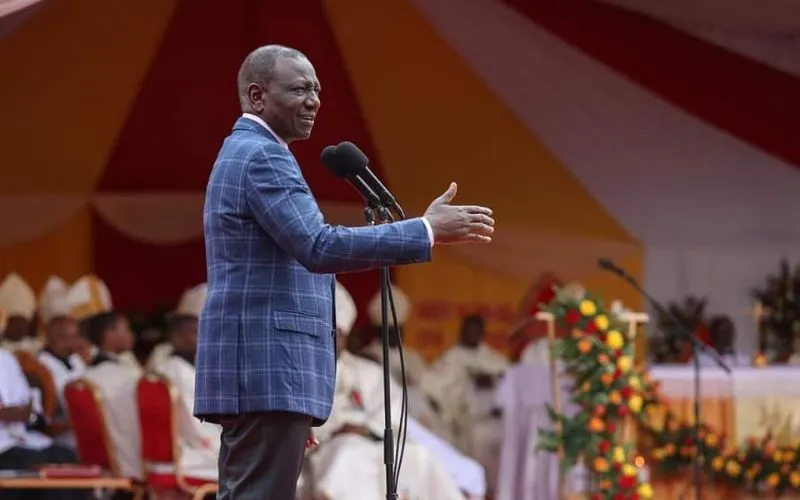 President William Samoei Ruto. Credit: State House Kenya
President William Samoei Ruto. Credit: State House Kenya
President Ruto expressed his willingness to correct the mistakes in his government, especially those that members of the Kenya Conference of Catholic Bishops (KCCB) recently pointed out.
Acknowledging that the country’s universal health coverage that KCCB members addressed in their recent letter had been “riddled with challenges”, the Kenyan President said, “I want to assure our Bishops and all the citizens of this country that we are going to rectify the mistakes that the Bishops have pointed out to us.”
Agnes Aineah is a Kenyan journalist with a background in digital and newspaper reporting. She holds a Master of Arts in Digital Journalism from the Aga Khan University, Graduate School of Media and Communications and a Bachelor's Degree in Linguistics, Media and Communications from Kenya's Moi University. Agnes currently serves as a journalist for ACI Africa.
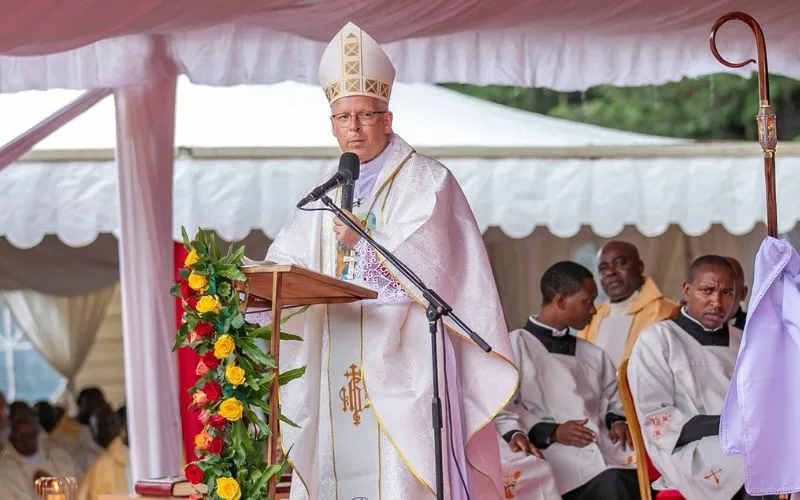 Archbishop Hubertus van Megen. Credit: Catholic Archdiocese of Nairobi (ADN)
Archbishop Hubertus van Megen. Credit: Catholic Archdiocese of Nairobi (ADN)


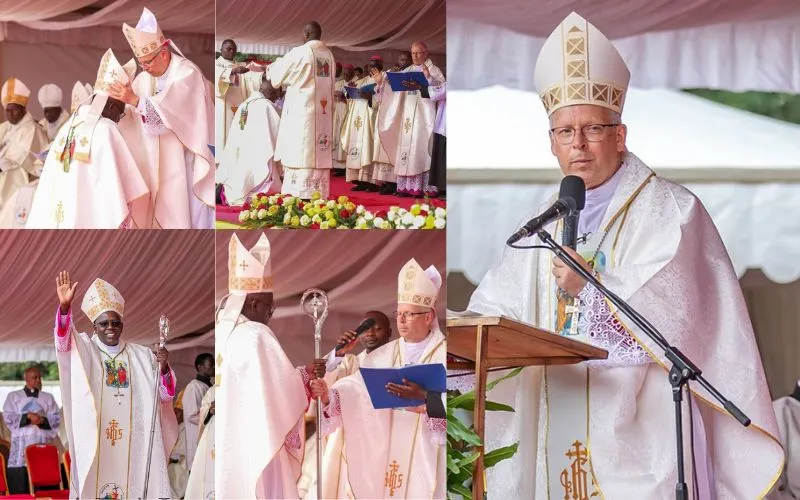
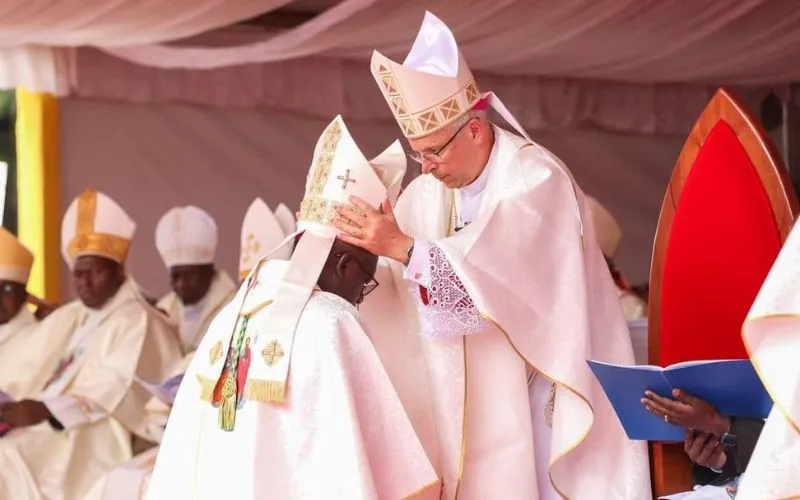 Credit: Catholic Archdiocese of Nairobi (ADN)
Credit: Catholic Archdiocese of Nairobi (ADN)
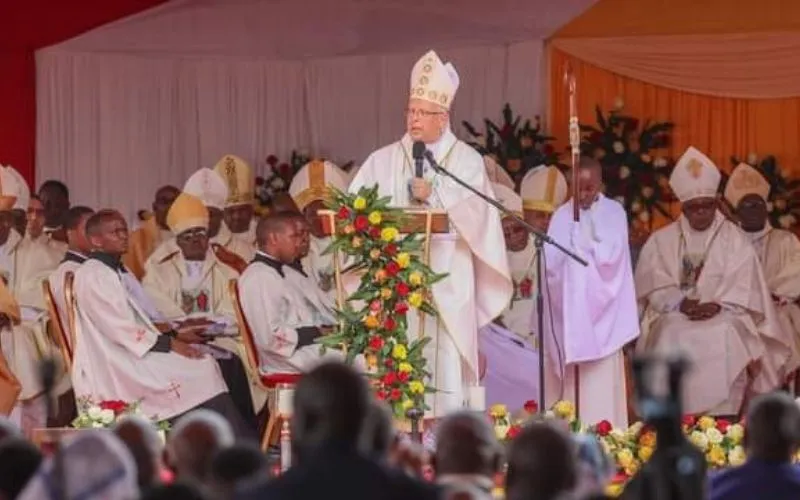 Credit: Catholic Archdiocese of Nairobi (ADN)
Credit: Catholic Archdiocese of Nairobi (ADN) Credit: Catholic Archdiocese of Nairobi (ADN)
Credit: Catholic Archdiocese of Nairobi (ADN) Credit: Catholic Archdiocese of Nairobi (ADN)
Credit: Catholic Archdiocese of Nairobi (ADN) Credit: Catholic Archdiocese of Nairobi (ADN)
Credit: Catholic Archdiocese of Nairobi (ADN) Credit: Catholic Archdiocese of Nairobi (ADN)
Credit: Catholic Archdiocese of Nairobi (ADN) Credit: Catholic Archdiocese of Nairobi (ADN)
Credit: Catholic Archdiocese of Nairobi (ADN) President William Samoei Ruto. Credit: State House Kenya
President William Samoei Ruto. Credit: State House Kenya


